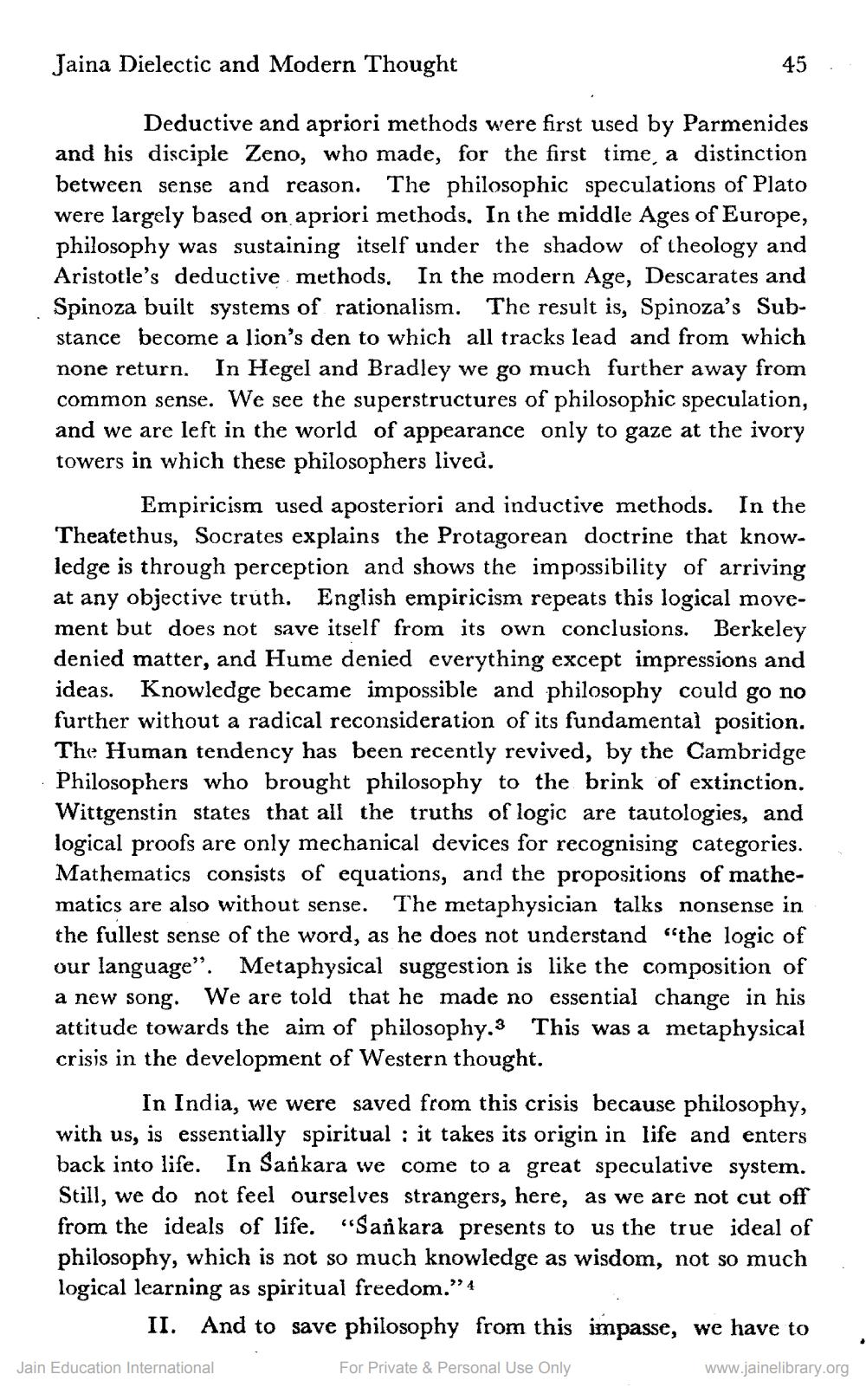________________
Jaina Dielectic and Modern Thought
45
Deductive and apriori methods were first used by Parmenides and his disciple Zeno, who made, for the first time, a distinction between sense and reason. The philosophic speculations of Plato were largely based on apriori methods. In the middle Ages of Europe, philosophy was sustaining itself under the shadow of theology and Aristotle's deductive methods. In the modern Age, Descarates and Spinoza built systems of rationalism. The result is, Spinoza's Substance become a lion's den to which all tracks lead and from which none return. In Hegel and Bradley we go much further away from common sense. We see the superstructures of philosophic speculation, and we are left in the world of appearance only to gaze at the ivory towers in which these philosophers lived.
Empiricism used aposteriori and inductive methods. In the Theatethus, Socrates explains the Protagorean doctrine that knowledge is through perception and shows the impossibility of arriving at any objective truth. English empiricism repeats this logical movement but does not save itself from its own conclusions. Berkeley denied matter, and Hume denied everything except impressions and ideas. Knowledge became impossible and philosophy could go no further without a radical reconsideration of its fundamental position. The Human tendency has been recently revived, by the Cambridge Philosophers who brought philosophy to the brink of extinction. Wittgenstin states that all the truths of logic are tautologies, and logical proofs are only mechanical devices for recognising categories. Mathematics consists of equations, and the propositions of mathematics are also without sense. The metaphysician talks nonsense in the fullest sense
t sense of the word, as he does not understand the logic of our language". Metaphysical suggestion is like the composition of a new song. We are told that he made no essential change in his attitude towards the aim of philosophy.3 This was a metaphysical crisis in the development of Western thought.
In India, we were saved from this crisis because philosophy, with us, is essentially spiritual : it takes its origin in life and enters back into life. In Sankara we come to a great speculative system. Still, we do not feel ourselves strangers, here, as we are not cut off from the ideals of life. "Sarkara presents to us the true ideal of philosophy, which is not so much knowledge as wisdom, not so much logical learning as spiritual freedom.” 4
II. And to save philosophy from this impasse, we have to Jain Education International For Private & Personal Use Only
www.jainelibrary.org




